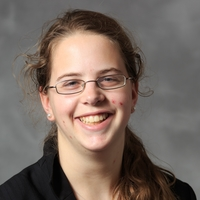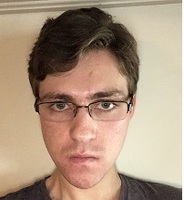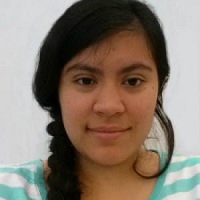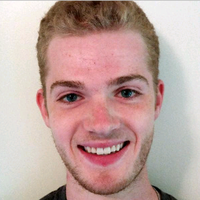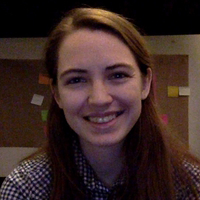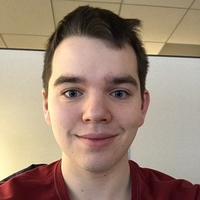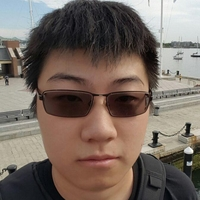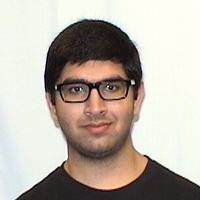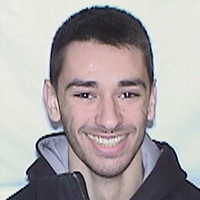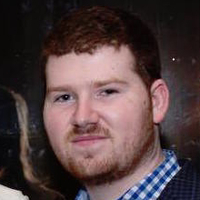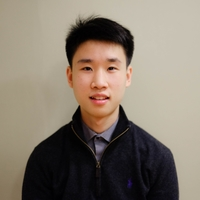General
People
Instructors:
|
|
|
|
|
Instructors design and implement this class, lead lectures, create the labs, assignments, and exams. The instructors are here to teach from life.
|
|
|
|
|
|
|
|
|
|
|
|
|
|
|
|
|
|
|
|
|
|
|
|
|
|
|
Your TAs and tutors help run the labs, grade of homework sets, help grade the exams, and hold office hours. In general, they are apprentice teachers and are here to learn how to run a course. At the same time, though, they are your peers who have taken the course, and can see your problems from your perspective.
Communications
If you need help, you may talk to any of the instructors, the TAs or tutors during their office hours.
Use NEU email (@husky.neu.edu) to reach any of the course staff; usernames are given above. Use @ccs.neu.edu to reach instructors.
Office Hours
General Policies
Late assignment policy: Late assignments will be accepted but your maximum grade drops by 25% per day. Speak to the professors in advance of a deadline if you cannot complete an assignment on time.
Laptop policy: No laptops in class.
Academic honesty: We will strictly enforce Northeastern’s academic integrity policy. You may discuss problems with other students, but you should not share or show code to anyone other than your assigned partner. Violations of academic integrity will be reported to OSCCR and will have a negative impact on your grade.
Lectures
Section 1: Monday, Wednesday and Thursday at 9:15–10:20am
Knowles Center 010
Section 2: Monday, Wednesday and Thursday at 10:30–11:35am
Robinson Hall 019
Accelerated: Monday and Thursday at 11:45am–1:25pm
Behrakis 310
Section 4: Monday, Wednesday and Thursday at 1:35–2:40pm
Knowles Center 010
Section 5: Monday, Wednesday and Thursday at 4:35–5:40pm
Knowles Center 010
Section 6: Monday, Wednesday and Thursday at 4:35–5:40pm
Shillman Hall 305
Lectures policy:
You are required to read the lecture material for the given lecture before coming to class. During the lectures we will discuss the material covered in the required reading, answer questions, provide additional examples and applications.
It is OK if you do not understand everything when you first read it, but reading about the new concept ahead of the time will give you a chance to anticipate the questions you may have and allow you to follow better the details of explanation during the lectures.
Labs
Labs are held in 210 WVH on
Mondays at 6–7:40pm (Accelerated)
TAs: Tyler KindyTuesdays at 9:50–11:30am
TAs: Michael Yessaillian, Samuel SiegmeisterTuesdays at 11:45am–1:25pm
TAs: Logan WellsTuesdays at 1:35–3:15pm
TAs: Yuvi Shatil, Christian Munoz-RobayoTuesdays at 3:25–5:05pm
TAs: Christian Munoz-Robayo, Yuvi Shatil
Labs policy
The goal of the labs is to see in practice problems that illustrate the concepts covered in the lectures, and to prepare you for the next programming assignment.
There is a lot of technical detail related to running Java programs that will be covered in the early labs. Later labs will focus more on design questions and on good Java programming practice.
We will ask you to submit some of the lab problems at the end of each lab.
In-lab Quizzes
We will be running quizzes during most of the labs, possibly without prior warning. The goal of the quizzes is to see that you are familiar with the most basic concepts covered during the recent lectures, labs, and assignments.
Quizzes will be graded, and are counted as part of your exam scores (see Exams below). The intent is to assess your progress in the course in smaller chunks rather than just through lengthy midterm exams.
If you do not pass the quiz, you need to meet with the instructor within the next week, to identify the problems you may have and to help you get back on track.
Computing Environment
You will complete your assignments (other than the first one) using the Eclipse IDE. Though, if you feel more comfortable, you may choose to use another IDE (e.g. NetBeans) or work directly from the command line, but you and your partner must both be comfortable with the chosen programming environment, and the staff may not be able to assist you with issues encountered in other environments.
You will use Bottlenose to work on your homework sets, to keep track of revisions, and to submit your homework.
Assignments
There will be one problem set each week, comprised of two parts: practice problems and pair-programming problems.
The practice problems will be a series of practice problems that every student must be able to solve. You should work out these problems on your own, and keep your solutions as an electronic portfolio. You may ask the instructor to give an informal review your portfolio at any time during the semester.
In the pair-programming problems you and your partner will apply the concepts from lectures and labs. The problems will consist of structured programming assignments that may be based on the work done in previous weeks, and may also include more creative projects where you can practice your design skills.
Due Date: Thursdays at 9:00pm, unless otherwise specified. There is a penalty for late homework.
Pair Programming
You must work on your problem sets in pairs. We will assign you a partner. Every few weeks, you will get a new partner.
Important Pair programming means that you and your partner work on the problem sets jointly. You read them together and you work on the solutions together. One of the lab’s purposes is to teach you how to work in pairs effectively; indeed, pairs are provably more effective than individuals in programming. The rough idea is this: One of you plays pilot, the other co-pilot. The pilot works on the keyboard and explains aloud what is going on; it is the co-pilot’s responsibility to question everything. After a problem is solved to the satisfaction of both, you must switch roles.
Every partner must be able to solve every homework problem in the end. In other words, you must be able to solve every homework problem on your own.
If you are having difficulties working with your partner, please inform your lab TA or your instructor.
Academic Integrity
All programs must be completed strictly by you and your partner. You are free to discuss the problem sets with others, so long as you acknowledge whoever you discussed the problem with. However, you may not share code in any way. Submitting code that is not your own will be considered a violation of the University’s Academic Integrity Policy (page 40 of the 2016-2017 Underaduate Student Handbook). Violations of academic integrity will be reported to OSCCR and will have a negative impact on your grade.
Be aware that while submitting someone else’s code is clearly a violation, so is sharing your code with others, even if you truly just mean to help. Outside an academic environment, sharing code with unauthorized parties can be a criminal offense and have severe and unanticipated consequences.
If you are ever unsure of whether sharing is unacceptable or not, ask one of the course staff.
Exams
You may bring one sheet of notes to exams (may be typed or hand-written, one-sided or double-sided).
- Midterm 1: Thursday, 2/16, 6:00-9:00pm. Rooms:
Lerner: 010 Behrakis
Razzaq: 200 Richards
Freifeld: 168 Snell Engineering
Naji: 97 Cargill
- Midterm 2: Thursday, 4/6, 6:00-9:00pm. Rooms:
Lerner: 010 Behrakis
Razzaq: 200 Richards
Freifeld: 168 Snell Engineering
Naji: 201 Mugar
Projects
There will be two substantial class projects implemented over the last several weeks of the course. You will present your project to the class during the last two weeks of the course. You will also be required to comment on the projects presented by your peers.
Grades
You will get a GPA for your homework (including the project) and for your exams and quizzes. You must have both a passing homework GPA and a passing overall GPA to pass the course. For the final grade, we will assign a weight of 40% to the homeworks and the project grade and a weight of 55% to the exams and quizzes. The remaining 5% are assigned to lab work and class participation. The last two assignments include suggestions for extra credit, which we will count towards offsetting a poor exam grade.




